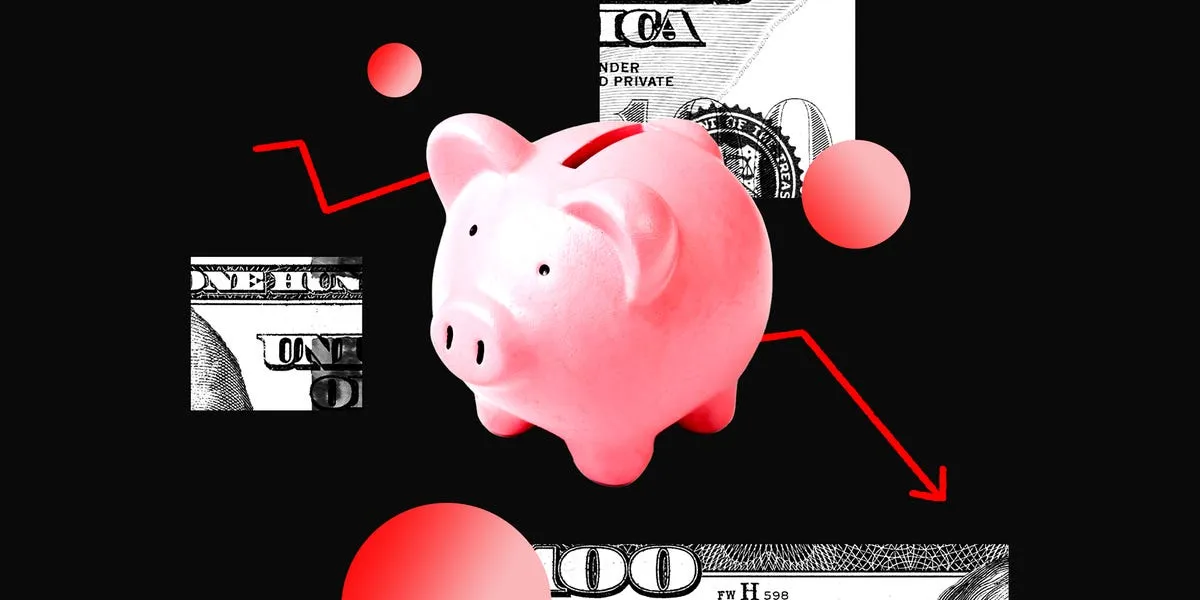
After years of the US economy avoiding a downturn, recession fears are beginning to surface. Concerns surrounding tariffs and potential government layoffs have cast a shadow over the economic outlook, leading to increased market volatility. In light of these developments, Business Insider consulted with financial planners to provide valuable advice on how individuals can prepare for a potential recession.
As recessionary fears grip Wall Street, stock prices have started to drop, resulting in a bleak economic outlook. The uncertainty stemming from President Donald Trump's policies, which include implementing sweeping tariffs and substantial federal workforce reductions, has left investors on edge. Recently, the Nasdaq 100 entered correction territory, marking a 10% decline since mid-February, while the S&P 500 has fallen by 7% during the same period. With calls for a downturn growing louder, some forecasts even suggest a period of stagflation, characterized by low growth and high inflation.
In such a dire market environment, it's essential to remain composed. Financial experts emphasize that panic can lead to hasty decisions that may negatively impact one's financial future. Gina Bolvin, president of Bolvin Wealth Management Group, explains that since GDP data is often backward-looking, the economy may recover from a recession before it is officially recognized. She encourages long-term investors to keep purchasing assets to benefit from lower prices, stressing that the only adjustment needed in a portfolio is to ensure it is diversified enough to weather economic storms.
During a recession, stocks can experience heightened volatility. Lisa Featherngill, national director of wealth planning at Comerica Wealth Management, suggests increasing holdings in ultra-safe US Treasury bills to shield portfolios from significant fluctuations in equities. Importantly, for those with long-term investment goals like retirement, it’s critical not to sell into a declining market. Historically, the stock market has shown a consistent upward trend over the decades, and panic selling can hinder long-term growth.
Brett Panziera, CFP and associate director of financial planning at EP Wealth Advisors, emphasizes the importance of establishing and maintaining an emergency fund. This cash reserve should ideally cover non-discretionary expenses for at least six months in the event of job loss. Without an adequate emergency fund, individuals risk having to sell investments at reduced prices to meet their financial obligations. Panziera advises that retirees should aim for a cash reserve sufficient to cover two to three years of expenses.
Understanding one’s monthly spending is crucial during uncertain economic times. Panziera suggests categorizing budget items into 'needs' and 'wants' to identify potential areas for cuts if income decreases. By knowing monthly requirements, individuals can determine how much cash to keep available versus what can be invested for potentially higher returns. Although budgeting may not be the most enjoyable activity, it is vital for financial preparedness.
Martha Callahan, CPA and portfolio manager at FBB Capital Partners, highlights the importance of continuous investment in one’s career, especially during economic stress. Acquiring and refining skills relevant to one’s profession can mitigate the effects of inflation and enhance employability. Developing expertise in a specific field can also provide job security, making one less likely to be laid off.
In anticipation of an economic slowdown, Callahan advises prioritizing debt repayment. Unpaid debts can quickly accumulate, particularly if income is lost. With current credit card interest rates averaging around 20%, failing to manage debt can lead to significant financial strain. Featherngill recommends focusing on repaying high-interest debts first. This strategy can yield a return equivalent to the interest rate on the debt, effectively acting as an investment in one’s financial stability.
As recession fears loom, taking proactive steps can help individuals navigate potential economic challenges. By maintaining composure, building an emergency fund, reviewing budgets, enhancing skills, and managing debt, individuals can better prepare themselves for a potential recession. Staying informed and adaptable in these uncertain times is essential for financial resilience.